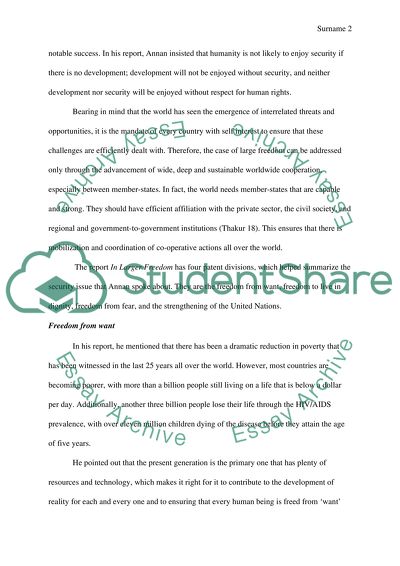Cite this document
(“How does Kofi Anan Define 'security' in his 2005 report In larger Essay”, n.d.)
How does Kofi Anan Define 'security' in his 2005 report In larger Essay. Retrieved from https://studentshare.org/history/1456710-how-does-kofi-anan-define-security-in-his
How does Kofi Anan Define 'security' in his 2005 report In larger Essay. Retrieved from https://studentshare.org/history/1456710-how-does-kofi-anan-define-security-in-his
(How Does Kofi Anan Define 'security' In His 2005 Report In Larger Essay)
How Does Kofi Anan Define 'security' In His 2005 Report In Larger Essay. https://studentshare.org/history/1456710-how-does-kofi-anan-define-security-in-his.
How Does Kofi Anan Define 'security' In His 2005 Report In Larger Essay. https://studentshare.org/history/1456710-how-does-kofi-anan-define-security-in-his.
“How Does Kofi Anan Define 'security' In His 2005 Report In Larger Essay”, n.d. https://studentshare.org/history/1456710-how-does-kofi-anan-define-security-in-his.


